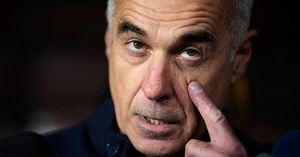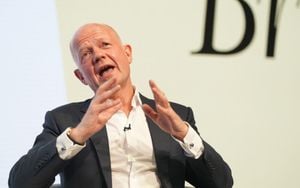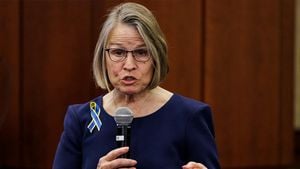The political stage is turning hot as the upcoming byelection for British Columbia's Cloverdale-Langley City takes the spotlight, particularly concerning the claims made by federal Liberal candidate Madison Fleischer about her Indigenous heritage. Fleischer, who recently declared her candidacy, has faced scrutiny from the local Métis community over her self-identification as Métis.
Fleischer asserts she identifies as Métis based on what she knows about her great-grandmother's ancestry. Amid the controversy, she stated, "I self-identify as Métis based on what I know about my great-grandmother's heritage, and I am currently collecting the necessary documentation to go through the application process to receive Métis Nation British Columbia (MNBC) citizenship." This statement indicates her intention to pursue formal recognition of her heritage but raises questions about the authenticity of her initial claims.
The Waceya Métis Society, which serves the local Métis community, has publicly distanced itself from Fleischer, urging her to provide verifiable evidence for her claims. They expressed their disappointment and indicated she could not substantiate her claims during discussions. A spokesperson for the organization remarked, "Waceya Métis Society wishes to distance itself from Madison's claims of Métis identity. We ask her to take the necessary steps to properly research and verify her Indigenous heritage before making any public assertions."
During discussions with the Waceya Métis Society, it became evident to the organization's representatives, including vice president Callum Robinson, who described Fleischer's demeanor during their meeting as "dismissive". Robinson commented, "She was not open to questions. She was clearly not up-to-date with Métis protocol and culture." This characterization stems from her inability to effectively connect her heritage to specific Métis communities or provide necessary documentation.
The timing of this scrutiny could not be more poignant, as it follows the resignation of Edmonton Centre Liberal MP Randy Boissonnault from his cabinet post, amid allegations concerning his supposedly shifting claims about Indigenous identity. The immediate overlap of these events raises concerns about the vetting process for candidates within the Liberal Party's ranks.
Fleischer, who previously included references to her Métis identity on her social media profiles and her professional biography with her public relations firm, has since removed these references. Her Liberal Party biography mentions her as a small-business owner and highlights her achievements, such as receiving community service awards. Notably, her recognition by local organizations previously attributed her with having "mixed Indigenous and Ukrainian heritage" without making specific claims about her Métis identity.
The underlying issue here transcends Fleischer's personal identity; it strikes at the heart of representation and authenticity for Indigenous peoples. This narrative reflects broader concerns about cultural appropriation and the integrity of claims made by individuals who seek to benefit politically or socially from their purported heritage.
Callum Robinson's expectations for transparency resonate deeply within the Indigenous community. He indicated, "Just claiming Indigenous identity for your own gain is not something we stand for." This sentiment encapsulates the need for accountability and respect for Indigenous identities, especially for those seeking public office.
Fleischer's path forward now lies in gathering evidence to support her claims and demonstrate her connection to Métis communities. Her decision to apply formally for membership with the MNBC is the first step she is taking to legitimize her claims as she seeks to reestablish her identity publicly.
The Cloverdale-Langley City byelection, set for December 16, adds urgency to this controversy for Fleischer. She is up against former Conservative MP Tamara Jansen, who held the seat between 2019 and 2021 before losing to Liberal incumbent John Aldag, who resigned to pursue a seat with the B.C. New Democrats.
Fleischer's tenure as the Liberal candidate could hinge on how effectively she navigates this controversy and whether she can substantiate her claims to Indigenous identity. The political winds may shift rapidly, and her future hangs delicately on the balance between her claims and the community's expectations of authenticity.
Whether or not Fleischer can prevail amid this turmoil will likely influence the broader discourse on Indigenous representation within political spaces and may set precedents for future candidates who position themselves similarly. The closing thoughts from Robinson synthesize the narrative poignantly—"The integrity of Métis identity is not to be taken lightly, especially when it involves public representation. Accurate, respectful, and legitimate representation is what our community deserves."



